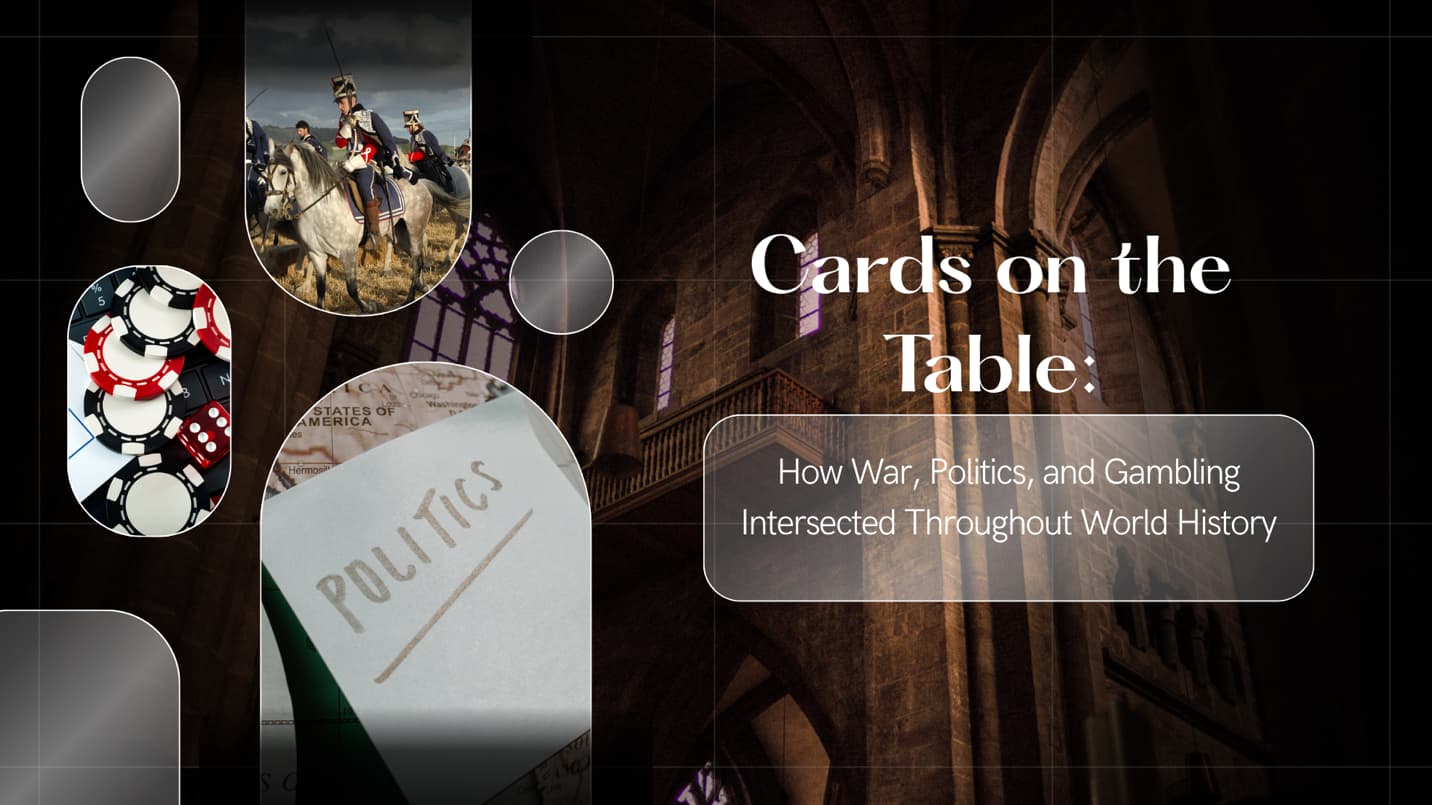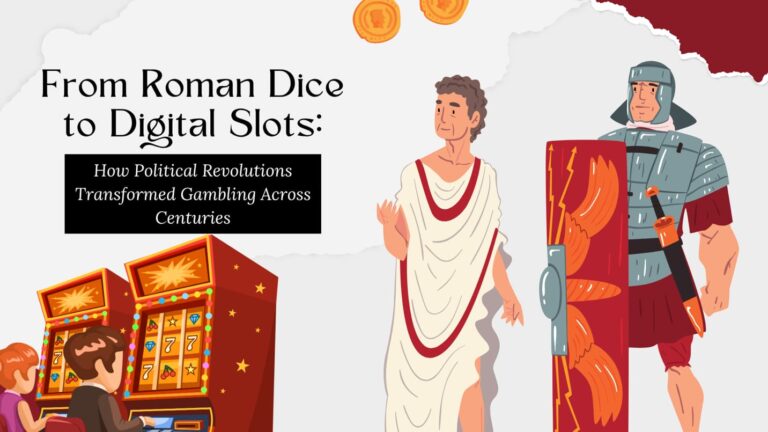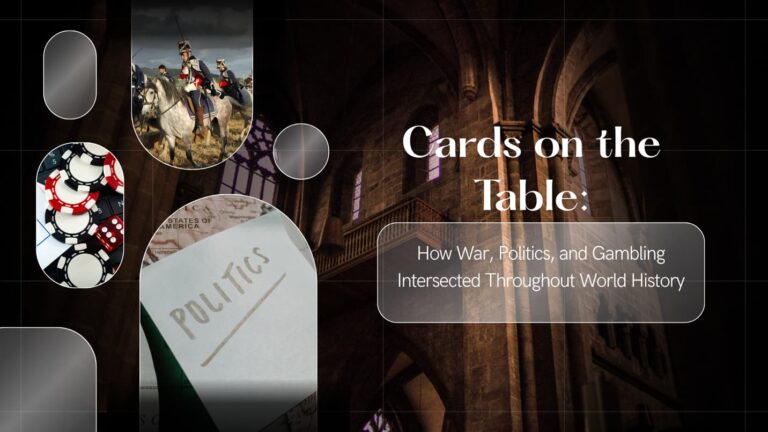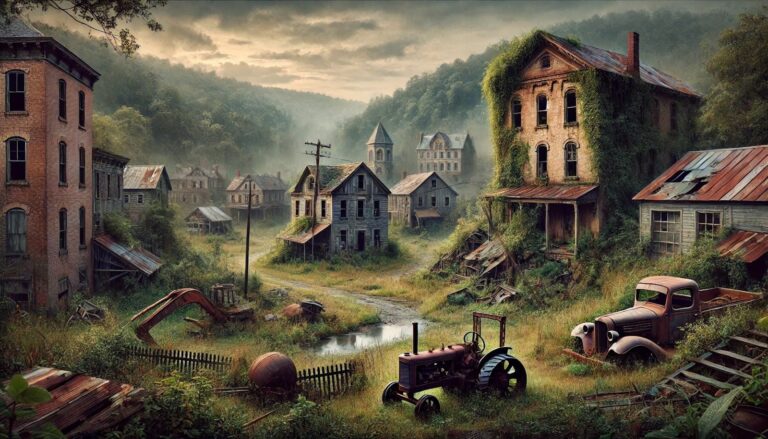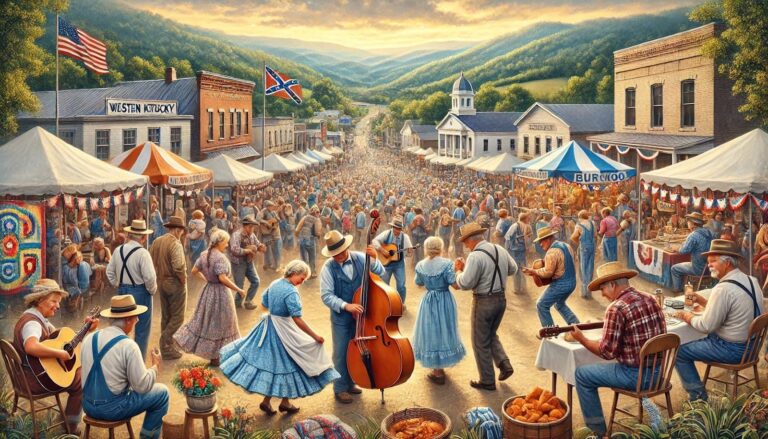Imagine it, it is Napoleon Bonaparte between battles, he is playing cards with his generals, he is learning not only their hands but their tells. Or American men in Vietnam trenches, spending the time playing poker as artillery crashed across their heads. In the course of time, war and politics as well as gambling had a way closer relationship than one would care to admit.
Games of chance have influenced choices, funded wars and defined personalities of leaders since ancient Roman camps through to military bases today. This crossroad informs us of something very deep about human nature, risk and power.
Ancient Battlegrounds and Games of Chance
Roman Legions and Dice
Roman soldiers were known to be high rollers. As long campaigns dragged on legionnaires used to sit round the camp-fires and roll dice with bones, and wager their meager wages. This practice was tolerated by military commanders that ensured that morale was elevated despite savage campaigns.
The relationship between gambling and warfare was captured by Julius Caesar himself. He did so when he crossed the River Rubicon in 49 BCE, disobeying the Roman Senate, when he said as he did, alea iacta est alea iacta est— the die is cast. The term well described the risk of civil war.
Eastern Warriors and Strategy Games
Eastern military cultures did not do so. Chess was invented in 6th-century India as an actual simulation of war, and the pieces were infantry, cavalry, elephants and royalty. The game was studied by Persian and Arab commanders in order to polish their mindset.
The ancient Chinese game of Go was required training to military planners in China. General thought that understanding the principles of the territorial control of the game would be the same as the success on the battlefield.
Medieval and Renaissance: High Stakes Politics
Crusaders and Card Games
The Crusades did not only remake the religious divisions- they also changed the European leisure. Playing cards that had been introduced to the Islamic world were carried by crusaders back to European courts in the 14th century. Such cards were fast diffusing in military camps and even in the noble households.
Medieval military camps had several uses of gambling:
- Keeping soldier morale when in long sieges.
- Establishing unofficial chains of command.
- Equipping officers with understanding of character of males in stress.
Royal Courts and Political Maneuvering
Gambling proved useful politically to the European monarchs. Henry VIII of England had a way of playing gambling tables to see courtiers, evaluate their judgement and control their fortunes. One of the nobles who owed money to gamblers got into the reach of the royalty.
Gaming rooms were used to negotiate treaties. The relaxed environment opened mouths and exposed real motives better as compared to the formal diplomatic environments.
The Age of Empires: Gambling Finances War
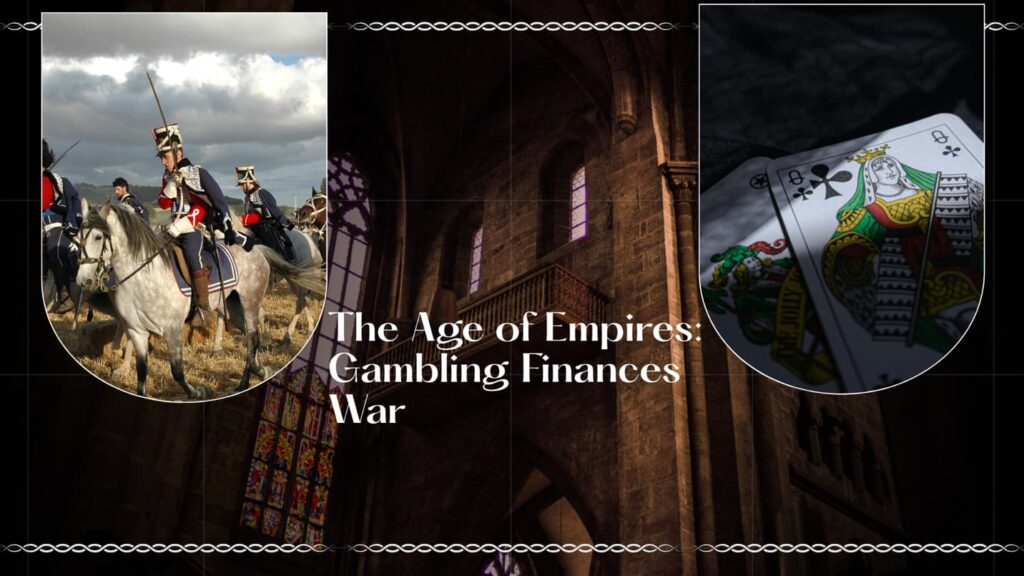
Lotteries Funding Military Campaigns
By 17 th century, the European powers encountered an issue; wars were very costly and the conventional method of taxation had its limits. England was the first to find a resolution-state sponsored lotteries. In 1569, the first state lottery in England contributed to military installations and the improvement of harbors.
The Revolutionary War was no exception as the American colonies did the same thing. Colonial administrators were confronted with British military prowess and no money in the treasury to buy weapons, uniforms and provisions; so they held lotteries to raise funds to buy them. Benjamin Franklin himself held a lottery to purchase cannons in the defence of Philadelphia.
Officers’ Mess and Strategic Thinking
Napoleon Bonaparte is known to play cards to test the decision making skills of his officers. He thought that how a man gambles depicted his temper in a stressful situation. Impulsive warriors were bad commanders; too wary one could not be as bold as he should have been.
The Duke of Wellington insisted that the gambling subculture among the British officer corps developed making decisions. Those officers who were capable of computing odds in the card table were capable of computing odds on the battlefield. Poker face is a military term used to denote the ability to remain calm despite the pressure and subsequently pervaded into the civilian world.
The World Wars: Cards, Dice, and Propaganda
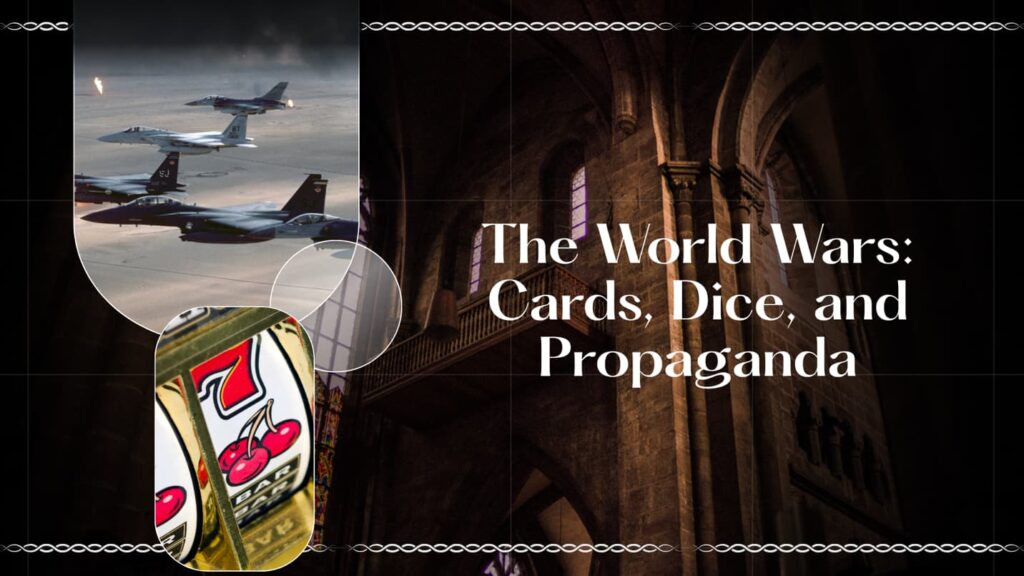
WWI Trenches
The psychological survival necessitated gambling because World War I was so brutal. Dice games and playing cards served to keep the sanity of soldiers in mud-filled trenches during the periods between artillery shells. These games brought small oases of normality in hell.
There were underground gambling rings operating behind the lines which thrived in the military camps. Officers tended to overlook these operations, as they knew they were morale worthwhile. The amount of money that changed hands in trench gambling was estimated to exceed the real salary of soldiers.
WWII Strategic Deception
Gambling became a strategic thing during the World War II. The largest bluff in history was the deception campaign Operation Fortitude that shielded D-Day, which led Hitler to believe that the Allies would invade Calais and not Normandy. This gigantic gamble was a success and it altered the course of the war.
General Dwight Eisenhower was an expert gambler whose playing background gave him his leadership style. Some of the significant military choices were:
- The Normandy invasion under horrible weather prognoses.
- The reaction to the Battle of the Bulge by taking the offensive.
- Computing strategic gains acceptable losses.
His talent to estimate probabilities and take decisive bets in the case of uncertainty came to his rescue.
Cold War to Modern Conflicts
Vietnam and Game Theory
The Vietnam War came along with the increase of poker in popular culture in America. The soldiers were obsessively playing the game, and the game became symbolic of the moral ambiguity of the war, in knowing when to withhold, or open up to incomplete information all in.
In the meantime, the field of academic game theory revolutionized the strategy of the military. Mathematical gambling principles were used by analysts of RAND Corporation to the nuclear deterrence strategy. Mutually assured destruction was in essence a high stakes game theory issue.
Contemporary Connections
These traditions are upheld by the modern military culture. Online gambling is a controversial issue within the military, as the military are concerned that their service members are developing problems during their time in the field. However, the military does know the long-term attractiveness of gambling to the stressed and bored soldiers.
The gambles made by the political leaders are calculated. The military operations, the political talks, and the maneuvers all need to estimate incomplete data and take a risk- the art that was developed over a millennium at the gaming table.
Conclusion
The meeting point of gambling and war and politics tells us about human choices when pressure is on us. The pattern is reflected in whether Roman legionnaires were rolling dice, Napoleon was screening generals by playing cards in card games, or the strategy of nuclear deterrence by modern strategists using game theory.
The battlefield and the card table are united through the prism of risk assessment, strategic thinking, and psychological fortitude. These two need opponents in reading, control of resources and calmness when it is most needed. These worlds will always be inextricably connected as long as humans engage in war and play games since it is always a question of dealing with uncertainty and making the best bet.
